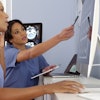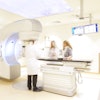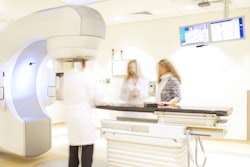Radiation oncologists from across the U.S. will meet with congressional leaders during the 15th annual American Society for Radiation Oncology (ASTRO) Advocacy Day.
Radiation oncologists will emphasize the following legislative priorities in meetings with policymakers:
- Allow radiation oncologists to participate in an advanced alternative payment model (APM) and stabilize Medicare payments.
- Support cancer research with continuous and stable funding for the U.S. National Institutes of Health (NIH) and U.S. National Cancer Institute (NCI).
- Avoid disruptions in health insurance coverage for cancer patients.
- Protect medical access to radioactive material.
ASTRO has proposed an alternative payment model for radiation oncology (RO-APM) that incentivizes adherence to nationally recognized clinical guidelines for five of the most common cancers treated with radiation therapy (breast, prostate, lung, colorectal, and head and neck).
In terms of Medicare, from 2009 to 2014, radiation oncology Medicare reimbursement rates sustained significant cuts, particularly to community-based clinics. ASTRO strongly supports recent bipartisan legislation that froze reimbursement rates at 2016 levels through the end of 2019. This stability has temporarily created a more secure environment to allow the U.S. Centers for Medicare and Medicaid Services (CMS) to work with stakeholders on the development of a successful RO-APM, according to ASTRO.
Regarding cancer research, the president's budget proposes cutting $2.3 billion from the $37 billion NIH budget for the 2019 fiscal year, which could lead to a $300 million cut for the NCI. ASTRO members are asking Congress to reject any proposed cuts and instead support an increase of $2.2 billion for the NIH, with a $410 million increase for the NCI.
For cancer patients, ASTRO strongly supports bipartisan solutions that protect cancer patients from losing or not being approved for coverage following a cancer diagnosis, as well as efforts to rein in restrictive practices from prior authorization groups.
Finally, ASTRO members are advocating for access to radioactive source-based technology in healthcare.



















